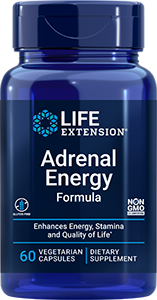- Science & Research
- Science News
- Newsletter
- 2012
- July 31

Newsletter
Newsletter
Reduced Vitamin D Levels Linked With Greater Risk Of Dying
Reduced vitamin D levels linked with greater risk of dying over 12 year period among frail older adults
Tuesday, July 31, 2012. In an article published online on June 13, 2012 in the European Journal of Clinical Nutrition, Ellen Smit of Oregon State University and her associates report a significantly increased risk of dying over a 12 year period among frail older men and women with reduced levels of vitamin D compared to those with higher levels. The study included 4,731 participants in the Third National Health and Nutrition Examination Survey (NHANES) who were over the age of 60. Serum 25-hydroxyvitamin D levels were assessed upon enrollment. Frailty was defined as meeting three of five criteria that included low body mass index, slow gait, weakness, exhaustion and reduced physical activity levels. Among those whose vitamin D levels were among the lowest 25 percent of participants at less than 50 nanograms per milliliter (ng/mL), there was a 94 percent greater risk of being frail compared to those whose levels were highest at 84 ng/mL or more. Intermediate levels of vitamin D were associated with pre-frailty, defined as having one to two frailty factors. Over a median 12.6 years of follow-up, subjects who were frail had more than twice the risk of dying than non-frail participants. Those who suffered from both frailty and low vitamin D levels had three times the risk of mortality compared to those who were not frail and whose vitamin D levels were high. "What this really means is that it is important to assess vitamin D levels in older adults, and especially among people who are frail," stated Dr Smit, who is a nutritional epidemiologist at Oregon State University's College of Public Health and Human Sciences. "Our study suggests that there is an opportunity for intervention with those who are in the pre-frail group, but could live longer, more independent lives if they get proper nutrition and exercise." While the researchers are uncertain whether low vitamin D contributed to frailty or frail people became vitamin D deficient, Dr Smith noted that "If you have both, it may not really matter which came first because you are worse off and at greater risk of dying than other older people who are frail and who don't have low vitamin D. This is an important finding because we already know there is a biological basis for this. Vitamin D impacts muscle function and bones, so it makes sense that it plays a big role in frailty." "We want the older population to be able to live as independent for as long as possible, and those who are frail have a number of health problems as they age," she added. "A balanced diet including good sources of vitamin D like milk and fish, and being physically active outdoors, will go a long way in helping older adults to stay independent and healthy for longer." | ||||||||||||||||||||||||||||||||||||||||
 | ||||||||||||||||||||||||||||||||||||||||
| ||||||||||||||||||||||||||||||||||||||||
 | ||||||||||||||||||||||||||||||||||||||||
|
| ||||||||||||||||||||||||||||||||||||||||
|
| ||||||||||||||||||||||||||||||||||||||||
The latest news on aging, nutrition, and vitamins
Lab
Testing
How Life Extension lab testing works











